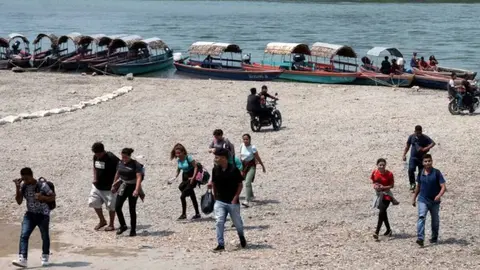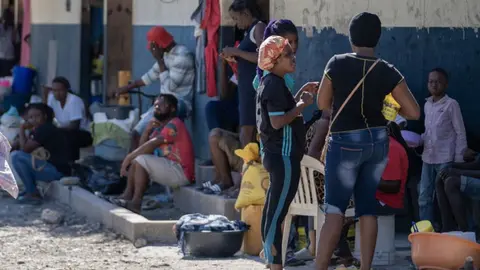How is the UN supporting Haiti to overcome violence and instability?
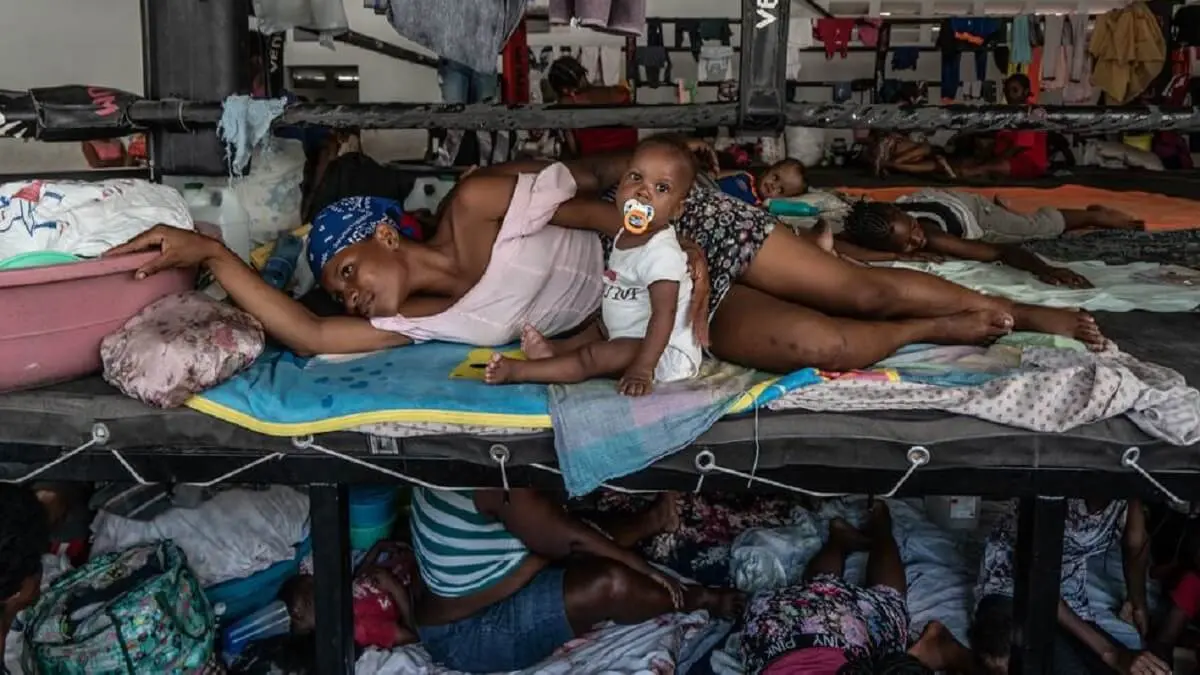
Haiti is engulfed in widespread gang violence, the country's institutions are on the brink of collapse and its citizens face a daily struggle for survival. Yet in the midst of this catastrophic security and humanitarian crisis, the UN continues to provide critical assistance to the beleaguered population.
- Humanitarian crisis
- The humanitarian response: acting under fire
- The multilateral response
- Funding: a huge gap to fill
- An uncertain future
humanitarian crisis, the UN continues to provide critical assistance to the beleaguered population.
While the situation in Haiti has long been characterised by lawlessness, with powerful gangs controlling much of the capital Port-au-Prince, the months of January and February 2024 have been the most violent of the past two years, with more than 2,500 people killed, kidnapped or injured since the beginning of the year. Prime Minister Ariel Henry's decision in March 2024 to resign has further complicated the situation.
On 21 March, Ulrike Richardson, UN humanitarian coordinator in Haiti, warned that violence is now spreading to new areas of the capital, including previously peaceful suburbs, after weeks of gang-orchestrated attacks on prisons, ports and hospitals. Richardson said human rights violations are widespread. Sexual violence, including the use of torture and "gang rape" against women, is widespread, he said.
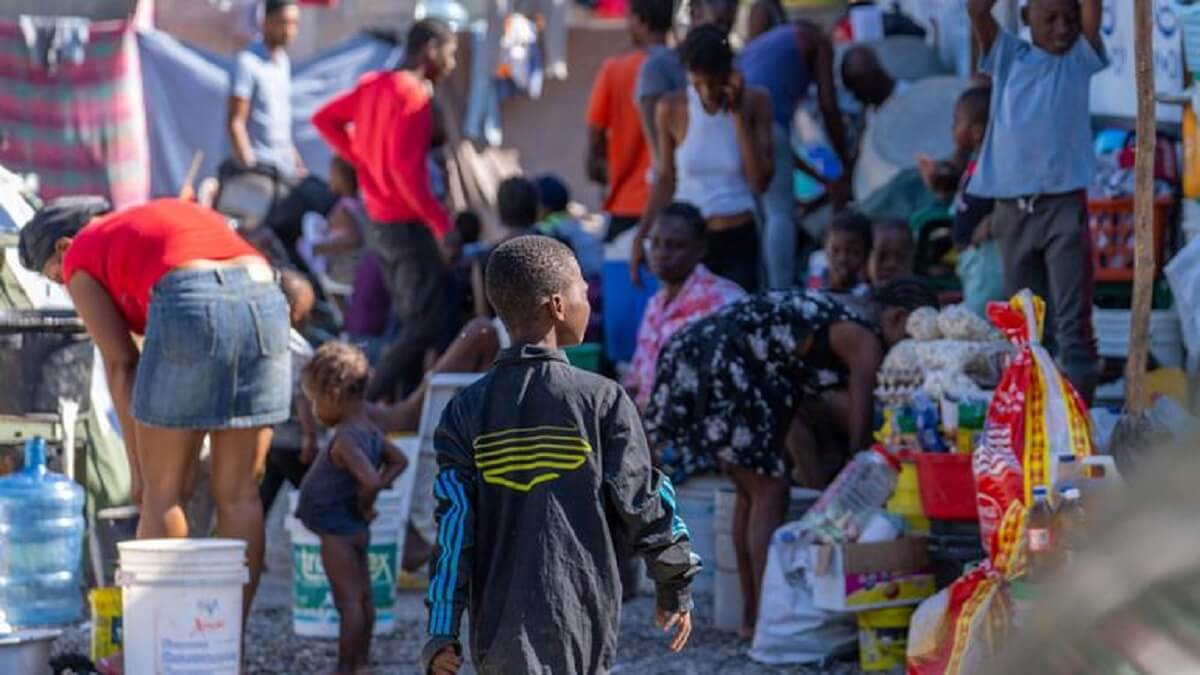
Humanitarian crisis
The UN official described a growing humanitarian crisis, with more than 362,000 internally displaced people, a lack of clean water and less than half of Port-au-Prince's health facilities functioning at normal capacity.
Hunger has reached unprecedented levels, according to a recent UN-backed assessment. According to the report, 4.97 million people face crisis or worse levels of acute food insecurity, including 1.64 million people facing "emergency" levels.
More and more people are trying to leave the capital, risking passage through gang-controlled routes. At least 33,000 people took refuge in the provinces in March, most of them to the departments of the Grand Sud, a region already home to more than 116,000 displaced people.
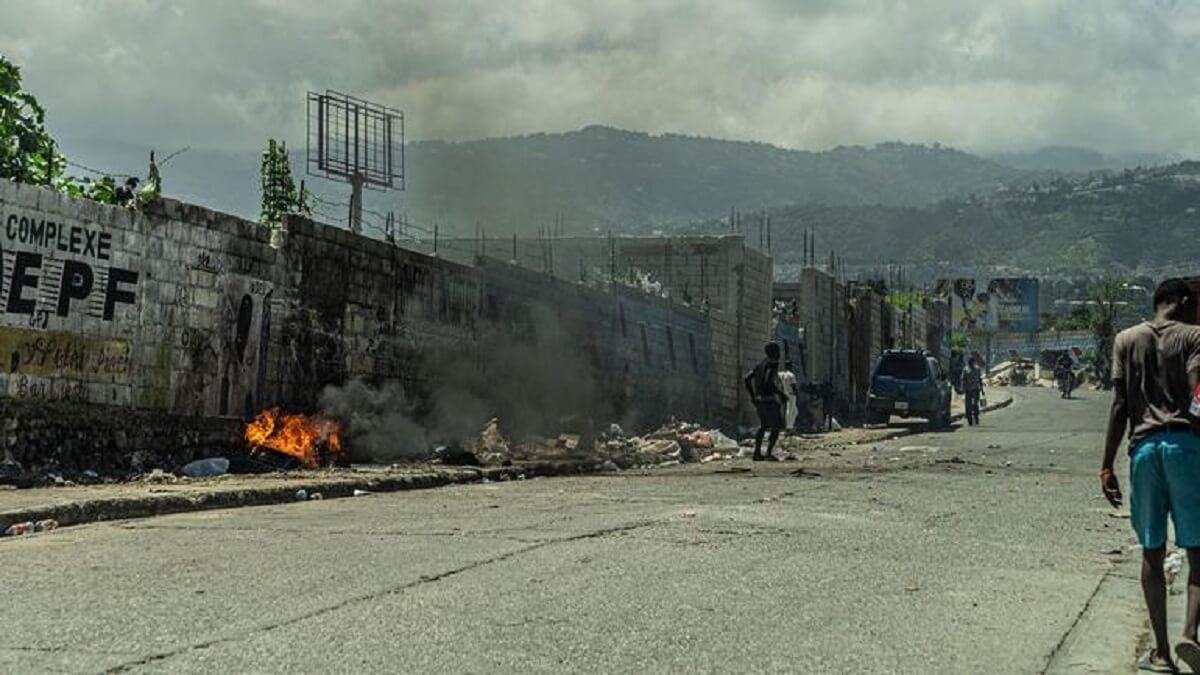
The humanitarian response: acting under fire
Since the beginning of the latest crisis, marked by a series of coordinated gang attacks in late February in Port-au-Prince that led to a state of emergency and the eventual resignation of the prime minister, UN workers have continued to distribute aid to civilians despite dangerous security conditions.
The World Food Programme (WFP) has distributed some 160,000 hot meals, while the World Health Organisation (WHO) has delivered a range of essential health supplies and UN Humanitarian Air Service (UNHAS) aircraft have carried some 800 kg of blood bags.
The UN, together with its partners, has been trying to address the lack of access to safe water: for example, between 16 and 18 March, UNICEF and the NGO Solidarités International delivered 20,500 gallons of water to four sites hosting more than 12,000 displaced people, while between 17 and 20 March the UN migration agency, IOM, delivered 16,000 gallons of water to two sites.
The Population Fund (UNFPA), which is responsible for reproductive health, and NGO partners are providing support to victims of gender-based violence in the form of a hotline providing psychosocial assistance and a mobile sexual and reproductive health and sexual and gender-based violence clinic at one of the sites for displaced people.
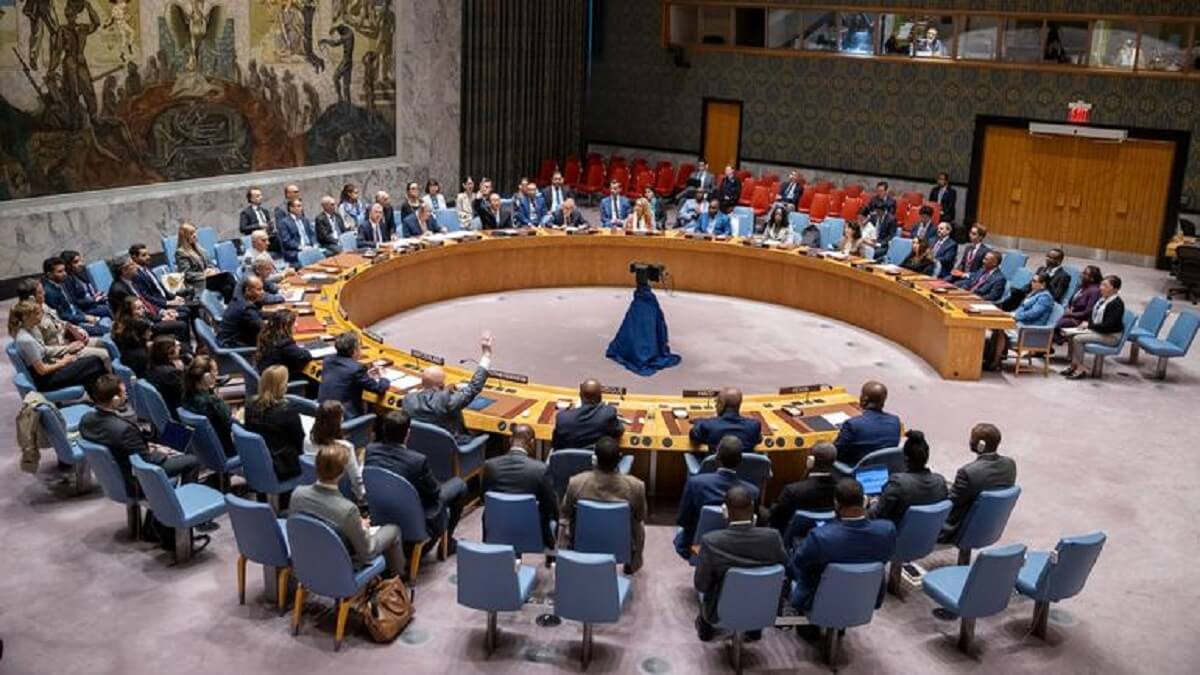
The multilateral response
Finding a way to end the Haitian crisis has been the subject of several high-level UN meetings.
On 21 March, the Security Council, the UN body charged with maintaining international peace and security, issued a press release reiterating its members' support for a "Haitian-led and Haitian-owned political process" and stressed the need for the international community to redouble its efforts to provide humanitarian assistance to the population and support the Haitian National Police.
Security Council members also expressed grave concern about the illicit flow of arms and ammunition into Haiti, which they said continues to be a major factor in instability and violence.
Last October, the Security Council authorised the deployment of a Multinational Security Support Mission (MSSM) to Haiti, at the request of the then government. The resolution was hailed at the time as a historic first, although the mission has not yet been deployed.
Funding: a huge gap to fill
Meanwhile, several senior officials in the UN system continue to call for a significant increase in funding for the humanitarian effort.
On Thursday, Richardson noted that the humanitarian response plan for Haiti, which requires $674 million, is only six percent funded. "Time is running out," she said.
In early March, Cindy McCain, director of the World Food Programme, warned that the aid effort was "fizzling out".
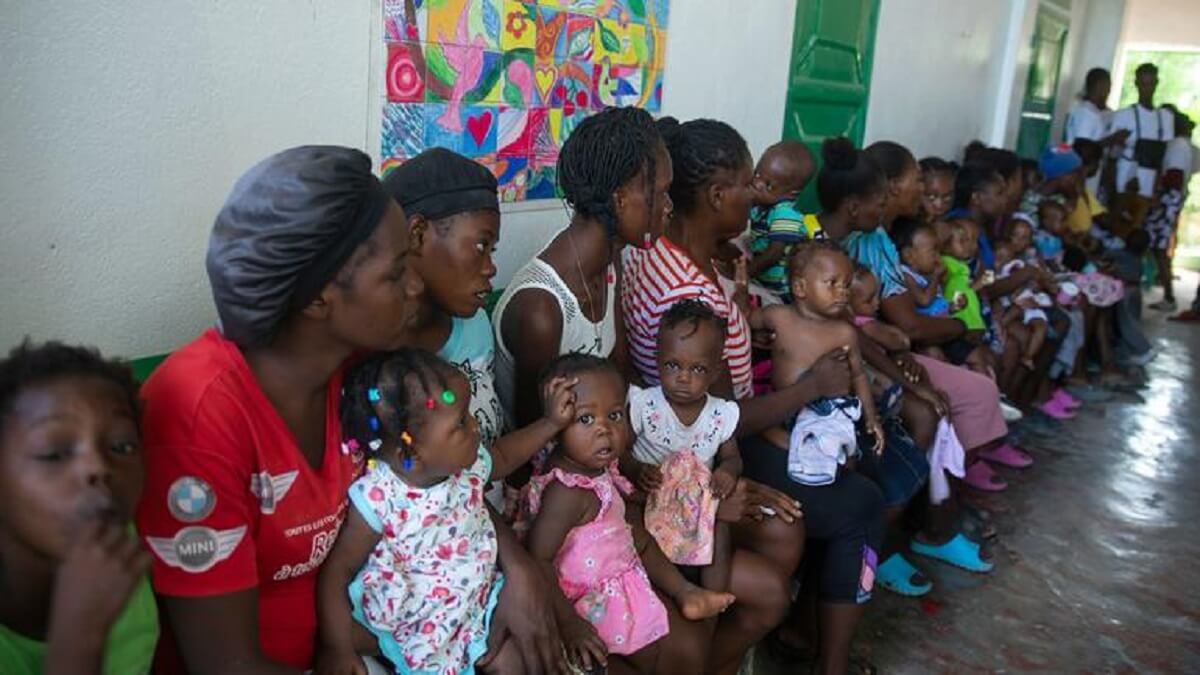
An uncertain future
The Multinational Mission is expected to reinforce the understaffed and under-resourced Haitian National Police, is led by Kenya, and several Caribbean countries have also pledged troops. The US has pledged some $300 million, according to media reports.
Although not a UN mission, it has been authorised by a Security Council resolution.

